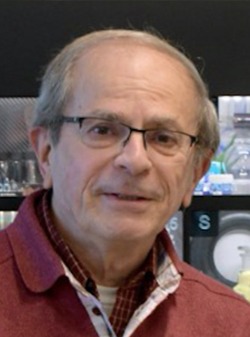
Year of Election
Division
Nationality
Country/Region of working/living
City
Institute
CV
Gary J. Schrobilgen, Professor, Department of Chemistry, McMaster University, is a native of Eastern Iowa and received his B.S. degree in chemistry from Loras College (Dubuque, Iowa). He obtained his Ph.D. degree in inorganic chemistry from McMaster University under the supervision of Prof. Ronald J. Gillespie. After two years as a Natural Sciences and Engineering Research Council (NSERC) of Canada Postdoctoral Fellow at Leicester University, U.K., Dr. Schrobilgen joined the McMaster Chemistry Department as a NSERC University Research Fellow (1980-90) and a member of faculty in 1980, and was promoted to full Professor of Inorganic Chemistry in 1988.
Prof. Schrobilgen has made important contributions in several areas of synthetic and structural inorganic chemistry; fluorine chemistry of the Group 6–9, 12, 14–18 and the polyatomic anions of the Group 13, 14, and 16 elements. His research programs are heavily reliant upon the use of modern methods of structural elucidation, including multi-NMR spectroscopy, X-ray crystallography, and vibrational spectroscopy, as well as quantum-chemical calculations, to characterize novel bonding situations among main-group and high-oxidation state transition element species. He is best known for his work in the experimentally challenging field of inorganic fluorine chemistry, encompassing the syntheses and structural characterization of a large percentage of the known compounds of krypton and xenon as well as fluoro- and oxyfluoro-derivatives of the main-group and transition elements in their highest oxidation states and at the limits of coordination. He is also known for his work in two areas of radiochemistry, which involve the syntheses of 99Tc oxyfluoro-compounds that are relevant to the uranium fuel cycle, and 18F-labelled radiopharmaceuticals of use in PET (positron emission tomography) imaging of the human brain. His fundamental work has been of importance to our understanding of structure and chemical bonding in so-called "hyper-valent" molecules and main-group ring, cage, and cluster species.
He is a recipient of the President's Award for Excellence in Graduate Supervision at McMaster University (1997); the American Chemical Society (ACS) Award for Creative work in Fluorine Chemistry (1998); several Canadian Society for Chemistry Awards: the Alcan Lecture Award (2002), the Award for Pure or Applied Chemistry (2002), the E. W. R. Steacie Award in Chemistry (2003); and has held a Canada Council Killam Research Fellowship (1998-99). He was elected a Fellow of the Royal Society of Canada in 1999. Professor Schrobilgen has served on the Executive Committee of the Division of Fluorine Chemistry of the ACS, holding the positions of Vice Chair/Secretary (2002-2004), Chair (2005) and Past Chair of the Fluorine Division (2006), as well as serving as a member of the Executive Committee at Large (2007-2026). He received an Alexander von Humboldt Senior Research Award (2010), the McMaster University (2011) Distinguished Alumni Award in the Sciences (2011), the Brock University Distinguished Alumni Award in Mathematics and the Sciences (2014), the Lifetime Achievement Award in Fluorine Chemistry sponsored by SciFluor (2012), and was elected a ACS Fellow (2013) and a Member of the European Academy of Sciences (2022). He presented the Neil Bartlett Memorial Lecture, University of California, Berkeley in April, 2017. Most recently, he was awarded the ACS Division of Fluorine Chemistry’s Distinguished Service Award (2021) and the Blaise Pascal Medal for Science and Technology (Chemistry Division) by the European Academy of Sciences (2022).
🏆
2022 Blaise Pascal Medal in Chemistry
